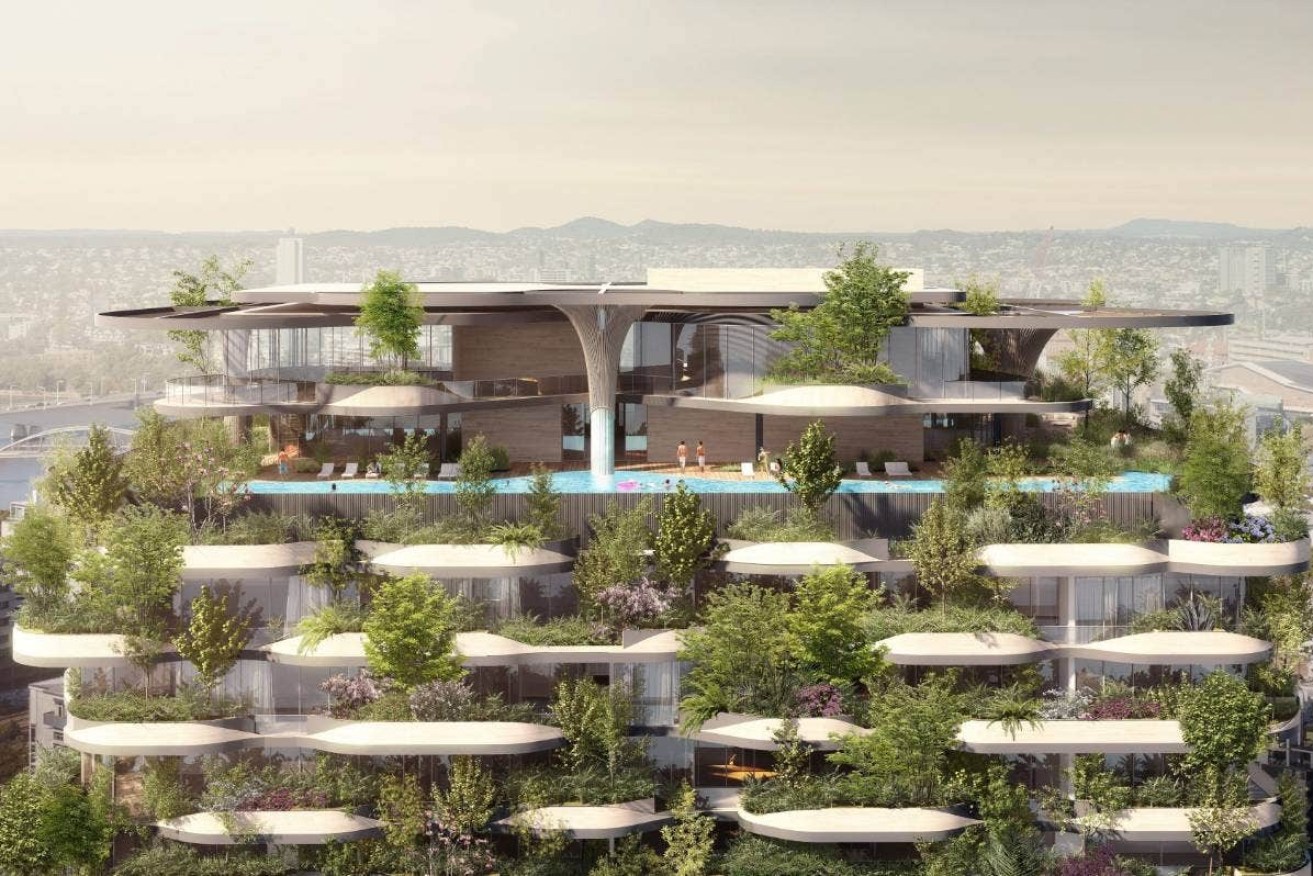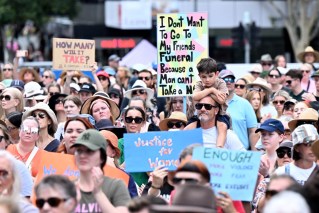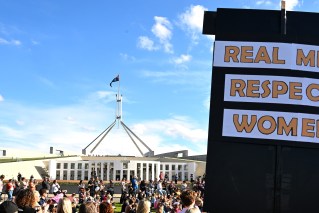Red lights for ‘world’s greenest residential tower’ – developer takes a detour
Aria Property Group has made significant changes to its planned “world’s greenest residential tower” at South Brisbane after a public backlash over the proposal and neighbouring Brisbane State High expressing worries about student privacy.


The changes from the original project, dubbed the “Urban Forest”, include cutting the overall height of the tower, increasing the setbacks and introducing a plan to help maintain the 20,000 plants and ambitious landscaping the finished development will boast.
The company has also offered to lease out part of the ground floor of the building to the council for a public library.
This follows significant public opposition to the project over its location and bulk as well as doubts over its sustainability as a “green building” given the large amount of plantings that would have to be maintained.
Those objecting included local Greens councillor Jonathan Sri, who admitted that the building looked “the kind of development that Greens councillors like me should be cheerleading for: rooftop solar panels, green walls, and trees growing out of balconies – what’s not to like?”
“Unfortunately, all of this is ultimately just greenwashing on an unsustainable project that undermines the broader public interest,” he said in his submission to the Aria development application.
On behalf of the developer, planning consultancy Urbis this week lodged a “minor change” to Aria’s original proposal.
“The changes have been made in response to discussions with Council and create a development which has greater articulation, reduced building bulk and greater public benefit,” Urbis said in a formal “request for change” to the council.
Aria now wants to reduce the building height from the original 30 storeys to 28 storeys and proposes a two-level communal area at the top. The planned number of apartments would also be cut from 382 to 306, with a substantial increase in building setbacks.
“The increased setbacks will provide reduction in any potential neighbouring amenity issues and will decrease the overall site coverage,” Urbis said.
Among the objections to the original proposal was the prestigious Brisbane State High, whose campus sits across the road from the building site.
In a letter to the council last year, the school’s general manager Christine Collins and executive principal Wade Haynes said they were concerned about the disruption to studies caused by construction and the potential invasions of student privacy.
“We feel that there will be a lack of privacy for these open air classes and teaching and learning will be impacted,” Collins and Haynes wrote in a submission on the development application.
They also point out that residents would be able to “see” into the school’s playgrounds from the new building.
In a further concession to the project’s critics, one of the developer’s subsidiary companies, Aria Living, has shown council detailed advice on how the plant life incorporated into the building, including more than 1000 trees, should be maintained.
“We do not believe the completion of the project means the end of a working relationship between the developer,” it has told the council.
“To the contrary, we wish this to be the start of an ongoing relationship, featuring support and assistance as and when required to the owners and body corporate.”












